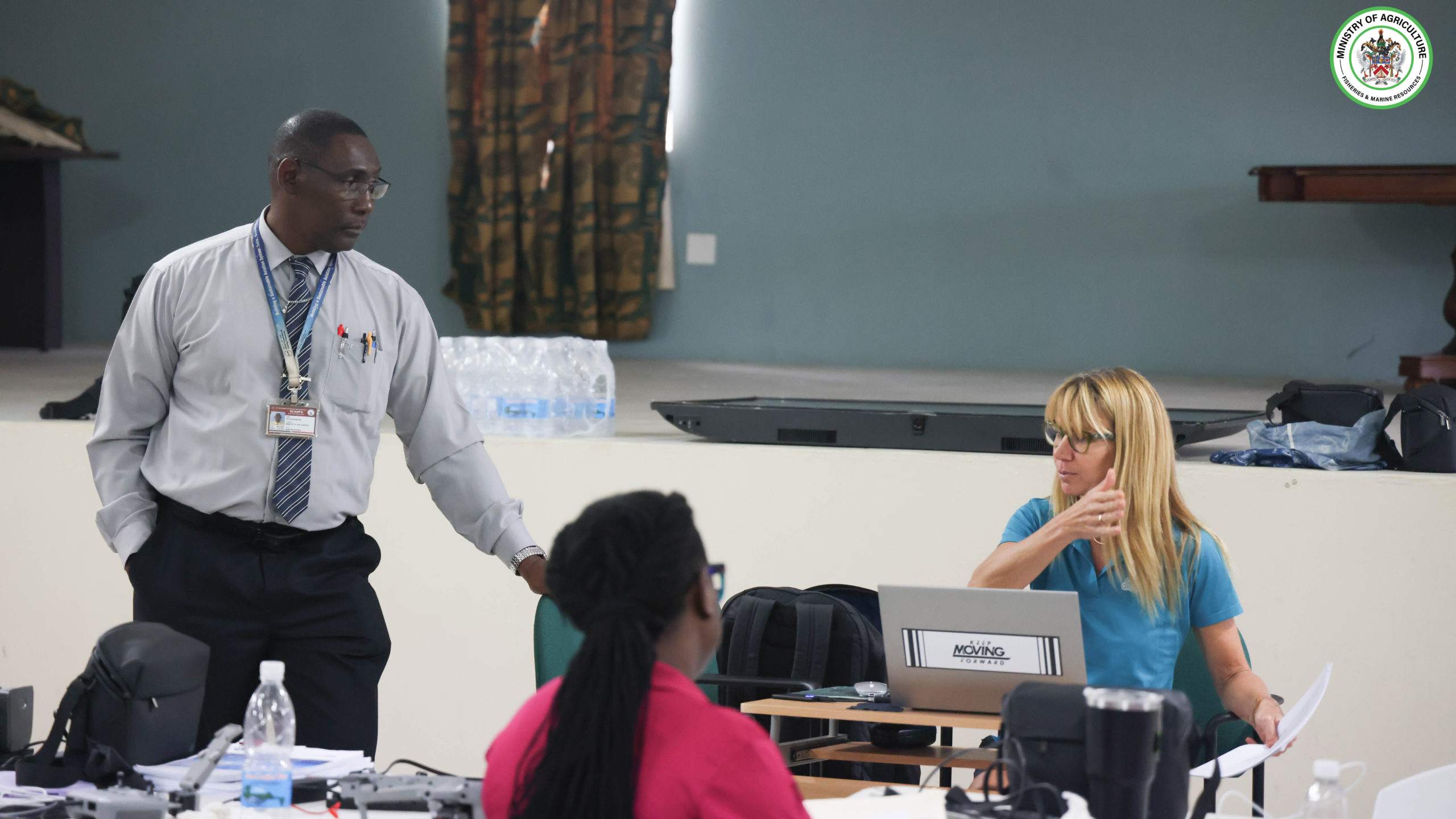Regional E-Agriculture Capacity Building in St. Kitts and Nevis: Drone Mapping and Geospatial Analysis Training by the Department of Agriculture and the Food and Agriculture Organization.
The Department of Agriculture (DOA) in St. Kitts and Nevis, in partnership with the Food and Agriculture Organization of the United Nations (FAO), has embarked on a transformative journey to modernize its agricultural sector through the integration of cutting-edge drone technology and geospatial analysis tools. This ambitious endeavor, manifested in a comprehensive 12-week training program under the “Regional E-Agriculture” project, aims to empower local farmers, agribusiness professionals, and other agricultural stakeholders with the digital skills necessary to enhance productivity, improve food security, and promote sustainable environmental management. The program, running from January 29 to April 3, 2025, provides participants with hands-on experience in drone flight operations, data collection, mapping techniques, and the practical application of these technologies in modern farming practices.
Central to this initiative is the expertise of Dr. Kim Baldwin, Founder & Director of Marine Spatial Information Solutions (MarSIS), a renowned expert in geospatial applications. Dr. Baldwin’s leadership is instrumental in facilitating the training on drone operations and environmental mapping, equipping participants with the skills to leverage drones for precision agriculture and effective land management. Her “Participatory-UAS” approach fosters interdisciplinary collaboration, ensuring that stakeholders across various sectors, including agriculture and marine resource management, are empowered to contribute to a more resilient and technologically advanced future for St. Kitts and Nevis. This collaborative approach extends beyond the DOA to encompass staff from the Department of Agriculture on Nevis, the Department of Physical Planning, and the National Emergency Management Agency (NEMA), highlighting the cross-sectoral benefits of integrating drone technology.
The training program focuses on developing practical skills and establishing a robust framework for drone operations within the federation. Participants are not only learning how to operate drones and collect data but also how to analyze and interpret that data for informed decision-making. This includes training on utilizing geospatial analysis tools, which are essential for interpreting the data collected by drones and translating it into actionable insights for agricultural practices. The development of a commercial UAS Policy and Standard Operating Procedures Manual is a key outcome of the project, ensuring the safe and effective integration of drone technology within the existing regulatory framework. This manual will provide guidelines for drone operations, data management, and the overall implementation of drone-based solutions in the agricultural sector.
The importance of this initiative is underscored by the alignment with the government’s commitment to sustainable agricultural development and technological innovation. Acting Director of the Department of Agriculture, Yushaner Jeffers, emphasizes that the project directly supports the government’s objectives of improving food security and environmental management through the integration of innovative technologies. This commitment extends beyond simply acquiring new technology to fostering a culture of technological adoption and ensuring that local stakeholders have the skills and knowledge to effectively utilize these tools. By investing in capacity building and training, the DOA is laying the groundwork for long-term, sustainable growth in the agricultural sector.
The “Regional E-Agriculture” project signifies a paradigm shift in the agricultural landscape of St. Kitts and Nevis. By embracing digital innovation, the DOA and FAO are not only equipping the current generation of agricultural professionals but are also investing in the future of the sector. The project seeks to create a more resilient and technologically adept agricultural community, positioning St. Kitts and Nevis as a leader in digital agricultural transformation within the Caribbean. This forward-thinking approach promises to enhance productivity, improve sustainability, and ensure food security for the federation.
The long-term vision of the project extends beyond immediate training and capacity building. By establishing a dedicated “Drone Unit” and providing extensive training, the project aims to create a sustainable framework for the ongoing use of drone technology and geospatial analysis. This includes support for team members in the planning and development of national monitoring strategies, ensuring that the skills and knowledge gained through the training program are effectively applied to address real-world challenges. The project also fosters interdisciplinary collaboration, recognizing the interconnectedness of various sectors and the potential for shared benefits from the application of drone technology. This integrated approach strengthens the overall impact of the project and promotes a holistic view of resource management.
Share this content:












Post Comment